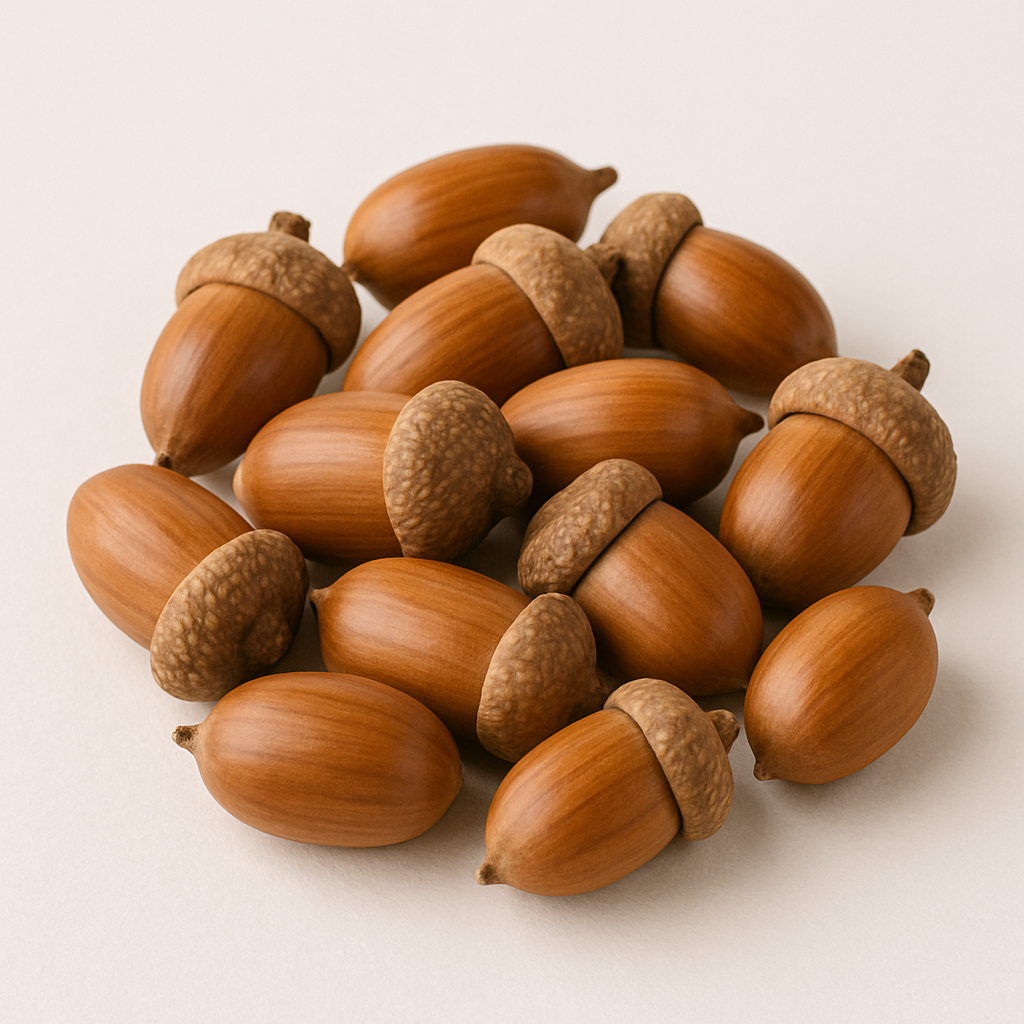Wadi
Acorns (Oak tree nuts)
Acorns (Oak tree nuts)
Couldn't load pickup availability
Primary Uses:
1. Culinary uses:
- Roasted and eaten as a snack
- Ground into flour for baking
- Used as a coffee substitute
2. Flavoring uses:
- Infused into syrups or sauces for a nutty flavor
- Added to stews or soups for a hearty flavor
3. Aroma uses:
- Used in potpourri or sachets for a natural scent
- Infused into oils for aromatherapy purposes
Other Uses:
1. Medicinal uses: Acorns have been used in traditional medicine to treat various ailments such as diarrhea, fever, and inflammation. They are also believed to have anti-cancer properties.
2. Religious uses: Acorns have been used in various religious ceremonies and rituals. In some cultures, they are considered a symbol of fertility and abundance.
3. Ornamental uses: Acorns are often used in crafts and decorations, such as wreaths and centerpieces. They can also be used as a natural filler in vases and bowls.
4. Insect repellent: Acorns contain tannins, which are natural insect repellents. They can be used to repel ants, moths, and other pests.
5. Dyeing agent: Acorns can be used to create natural dyes for fabrics and other materials. The tannins in the nuts produce a range of colors, from light yellows to dark browns.
6. Folklore uses: Acorns have been used in folklore and mythology for centuries. In some cultures, they are believed to bring good luck and prosperity.
7. Culinary garnish: Acorns can be roasted and ground into a flour, which can be used as a gluten-free alternative to wheat flour. They can also be used as a garnish for dishes such as salads and soups.
Caution:
1. Bitter taste: Acorns have a bitter taste due to the high levels of tannins, which can make them unpalatable for some people.
2. Toxicity: Raw acorns contain high levels of tannins and other compounds that can be toxic to humans and animals if consumed in large quantities.
3. Digestive issues: The high tannin content in acorns can cause digestive issues such as nausea, vomiting, and diarrhea.
4. Nutritional value: While acorns are a good source of carbohydrates and fats, they are low in protein and other essential nutrients.
5. Preparation time: Acorns require extensive preparation before they can be consumed, including soaking, boiling, and leaching to remove the bitter tannins.
6. Availability: Acorns are not widely available in most grocery stores and are often difficult to find in urban areas.
7. Allergies: Some people may be allergic to acorns, which can cause allergic reactions such as hives, itching, and difficulty breathing.
Share


